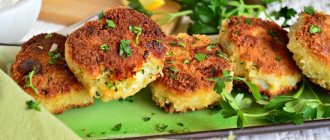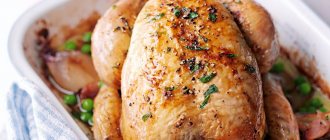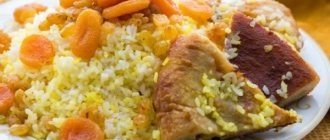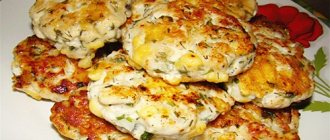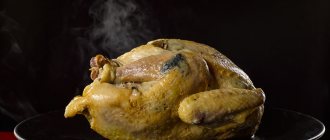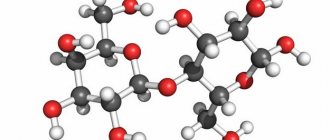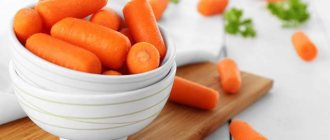The standard in milkshakes
Any product has its own original recipe, milkshake is no exception. The standard set of ingredients is as follows: milk and ice cream (or cream). Additional combinations of products are determined by individual taste. How many calories are in a milkshake is determined by the set of products.
The most successful ingredients for preparing the drink are:
- berries: raspberries, blueberries, currants, strawberries;
- fruits: peach, apricot, melon, banana, kiwi;
- nuts: almonds, hazelnuts;
- dried fruits: prunes, dried apricots;
- sweets: marshmallows, chocolate.
The cooking process is quite simple. It is necessary to mix the selected products in a blender bowl, grind them, transfer the contents to the mixer bowl, add milk and beat for 2 - 5 minutes. When serving, you can decorate with syrup, sweets, and nuts.
Recipe Cocktail with ice cream, milk and more. Calorie, chemical composition and nutritional value.
| Nutrient | Quantity | Norm** | % of the norm in 100 g | % of the norm in 100 kcal | 100% normal |
| Calorie content | 91.5 kcal | 1684 kcal | 5.4% | 5.9% | 1840 |
| Squirrels | 2.4 g | 76 g | 3.2% | 3.5% | 3167 g |
| Fats | 3.6 g | 56 g | 6.4% | 7% | 1556 g |
| Carbohydrates | 11.9 g | 219 g | 5.4% | 5.9% | 1840 |
| Organic acids | 0.5 g | ~ | |||
| Alimentary fiber | 0.9 g | 20 g | 4.5% | 4.9% | 2222 g |
| Water | 79.8 g | 2273 g | 3.5% | 3.8% | 2848 g |
| Ash | 0.751 g | ~ | |||
| Vitamins | |||||
| Vitamin A, RE | 26.2 mcg | 900 mcg | 2.9% | 3.2% | 3435 g |
| Retinol | 0.018 mg | ~ | |||
| beta carotene | 0.05 mg | 5 mg | 1% | 1.1% | 10000 g |
| Vitamin B1, thiamine | 0.027 mg | 1.5 mg | 1.8% | 2% | 5556 g |
| Vitamin B2, riboflavin | 0.113 mg | 1.8 mg | 6.3% | 6.9% | 1593 g |
| Vitamin B4, choline | 4.09 mg | 500 mg | 0.8% | 0.9% | 12225 g |
| Vitamin B5, pantothenic | 0.129 mg | 5 mg | 2.6% | 2.8% | 3876 g |
| Vitamin B6, pyridoxine | 0.101 mg | 2 mg | 5.1% | 5.6% | 1980 |
| Vitamin B9, folates | 5.19 mcg | 400 mcg | 1.3% | 1.4% | 7707 g |
| Vitamin B12, cobalamin | 0.07 mcg | 3 mcg | 2.3% | 2.5% | 4286 g |
| Vitamin C, ascorbic acid | 29.21 mg | 90 mg | 32.5% | 35.5% | 308 g |
| Vitamin D, calciferol | 0.004 mcg | 10 mcg | 250000 g | ||
| Vitamin E, alpha tocopherol, TE | 0.197 mg | 15 mg | 1.3% | 1.4% | 7614 g |
| Vitamin H, biotin | 0.447 mcg | 50 mcg | 0.9% | 1% | 11186 g |
| Vitamin K, phylloquinone | 0.1 mcg | 120 mcg | 0.1% | 0.1% | 120000 g |
| Vitamin RR, NE | 0.8 mg | 20 mg | 4% | 4.4% | 2500 g |
| Niacin | 0.258 mg | ~ | |||
| Macronutrients | |||||
| Potassium, K | 216.72 mg | 2500 mg | 8.7% | 9.5% | 1154 g |
| Calcium, Ca | 88.88 mg | 1000 mg | 8.9% | 9.7% | 1125 g |
| Magnesium, Mg | 23.63 mg | 400 mg | 5.9% | 6.4% | 1693 g |
| Sodium, Na | 39.04 mg | 1300 mg | 3% | 3.3% | 3330 g |
| Sera, S | 10.25 mg | 1000 mg | 1% | 1.1% | 9756 g |
| Phosphorus, Ph | 71.5 mg | 800 mg | 8.9% | 9.7% | 1119 g |
| Chlorine, Cl | 53.07 mg | 2300 mg | 2.3% | 2.5% | 4334 g |
| Microelements | |||||
| Aluminium, Al | 141.3 mcg | ~ | |||
| Iron, Fe | 0.317 mg | 18 mg | 1.8% | 2% | 5678 g |
| Yod, I | 12.59 mcg | 150 mcg | 8.4% | 9.2% | 1191 g |
| Cobalt, Co | 0.644 mcg | 10 mcg | 6.4% | 7% | 1553 g |
| Manganese, Mn | 0.0685 mg | 2 mg | 3.4% | 3.7% | 2920 g |
| Copper, Cu | 7.27 mcg | 1000 mcg | 0.7% | 0.8% | 13755 g |
| Molybdenum, Mo | 3.535 mcg | 70 mcg | 5.1% | 5.6% | 1980 |
| Tin, Sn | 6.3 mcg | ~ | |||
| Selenium, Se | 0.648 mcg | 55 mcg | 1.2% | 1.3% | 8488 g |
| Strontium, Sr | 7.14 mcg | ~ | |||
| Fluorine, F | 13.41 mcg | 4000 mcg | 0.3% | 0.3% | 29828 g |
| Chromium, Cr | 0.98 mcg | 50 mcg | 2% | 2.2% | 5102 g |
| Zinc, Zn | 0.2683 mg | 12 mg | 2.2% | 2.4% | 4473 g |
| Digestible carbohydrates | |||||
| Starch and dextrins | 0.499 g | ~ | |||
| Mono- and disaccharides (sugars) | 11.4 g | max 100 g | |||
| Galactose | 0.077 g | ~ | |||
| Lactose | 1.189 g | ~ | |||
| Sucrose | 2.869 g | ~ | |||
| Essential amino acids | 0.264 g | ~ | |||
| Arginine* | 0.018 g | ~ | |||
| Valin | 0.033 g | ~ | |||
| Histidine* | 0.013 g | ~ | |||
| Isoleucine | 0.037 g | ~ | |||
| Leucine | 0.066 g | ~ | |||
| Lysine | 0.044 g | ~ | |||
| Methionine | 0.015 g | ~ | |||
| Methionine + Cysteine | 0.023 g | ~ | |||
| Threonine | 0.03 g | ~ | |||
| Tryptophan | 0.007 g | ~ | |||
| Phenylalanine | 0.032 g | ~ | |||
| Phenylalanine+Tyrosine | 0.07 g | ~ | |||
| Nonessential amino acids | 0.427 g | ~ | |||
| Alanin | 0.019 g | ~ | |||
| Aspartic acid | 0.059 g | ~ | |||
| Glycine | 0.013 g | ~ | |||
| Glutamic acid | 0.146 g | ~ | |||
| Proline | 0.075 g | ~ | |||
| Serin | 0.04 g | ~ | |||
| Tyrosine | 0.037 g | ~ | |||
| Cysteine | 0.007 g | ~ | |||
| Sterols (sterols) | |||||
| Cholesterol | 9.72 mg | max 300 mg | |||
| Saturated fatty acids | |||||
| Saturated fatty acids | 2.2 g | max 18.7 g | |||
| 4:0 Oil | 0.064 g | ~ | |||
| 6:0 Kapronovaya | 0.045 g | ~ | |||
| 8:0 Caprylic | 0.025 g | ~ | |||
| 10:0 Kaprinovaya | 0.043 g | ~ | |||
| 12:0 Lauric | 0.039 g | ~ | |||
| 14:0 Miristinovaya | 0.154 g | ~ | |||
| 15:0 Pentadecane | 0.025 g | ~ | |||
| 16:0 Palmitinaya | 0.422 g | ~ | |||
| 17:0 Margarine | 0.023 g | ~ | |||
| 18:0 Stearic | 0.293 g | ~ | |||
| 20:0 Arakhinovaya | 0.031 g | ~ | |||
| Monounsaturated fatty acids | 0.52 g | min 16.8 g | 3.1% | 3.4% | |
| 14:1 Myristoleic | 0.025 g | ~ | |||
| 16:1 Palmitoleic | 0.057 g | ~ | |||
| 18:1 Oleic (omega-9) | 0.439 g | ~ | |||
| Polyunsaturated fatty acids | 0.092 g | from 11.2 to 20.6 g | 0.8% | 0.9% | |
| 18:2 Linolevaya | 0.051 g | ~ | |||
| 18:3 Linolenic | 0.029 g | ~ | |||
| 20:4 Arachidonic | 0.012 g | ~ | |||
| Omega-6 fatty acids | 0.1 g | from 4.7 to 16.8 g | 2.1% | 2.3% |
Banana milkshake
This option is perfect for those who exercise, since this particular drink energizes you with strength and will help restore the balance of vitamins in the body.
Recipe:
- milk - 300 ml;
- banana - 50 g;
- ice cream - 150 g.
How many calories are in a banana milkshake? As in the previous case, it all depends on the fat content of dairy products; on average, with low fat content, the calorie content is 80 kcal. As for proteins, there are 3 g of them, 3.2 g of fat, 10 g of carbohydrates.
How to reduce the number of calories in a milkshake?
If you exclude sugar, cream and ice cream from the cocktail, you can significantly reduce calories. For example, you can prepare a milkshake with the following ingredients: banana, orange, apple, pineapple, 1.5% milk and honey. 100 ml of such a cocktail will contain only 51.3 kcal. The difference is significant.
It is better to prepare this drink at home. In a cafe or fast food chain, the calorie content of cocktails is quite high. The calories of milkshakes there range from 86 kcal and above. Therefore, if you want to enjoy a milkshake as a dessert, buy the ingredients at the store and prepare it at home. You can add any fruit to the cocktail, or you can do without it. Plus, this dessert is very easy to prepare. In just a few minutes you can prepare a delicious treat for your guests that will not affect their figure.
Non-alcoholic and alcoholic – cocktails are popular in every corner of the vast globe, and each country has its own traditional drink, as well as a whole culture of drinking them. Some types are used as an aperitif, some are served with fruit snacks, others are an addition to desserts, and some can even be an independent dish: not only a refreshing drink, but also a complete meal. The variety of cocktails is amazing, and their range is growing every day. But first of all, attention should be paid to non-alcoholic types, since they are allowed for any age category and almost any organism, and therefore are the most frequently consumed. You should know how many calories are in a cocktail - milk, fruit and oxygen. What are they made of, how do they affect the body, and do they provide any benefit at all besides taste satisfaction?
The most loved by all age groups are milkshakes made from milk or cream with the addition of fruit juices or purees, ice cream and chocolate, with a delicate taste and aroma. Tall glasses with straws and liquid of different colors can be purchased today in almost any entertainment center. But how useful are they? And how harmless are they for the figure?
With the right manufacturing technology, an instant milkshake is not too scary in terms of calorie content and is even recommended by nutritionists, but only when milk with a low fat content is used. If the recipe contains only classic ice cream, skim milk and fruit puree, you get a light snack, rich in protein and calcium, which can replenish the lack of energy and improve digestion. The calorie content of a milkshake with a fruit additive usually depends on the “weight” of the fruit itself - a banana will greatly increase this indicator, while, for example, strawberries will keep it at a fairly low level. But on average, a fruit milkshake has a calorie content of 83 kcal per hundred grams. In addition to the already mentioned calcium and protein inherent in milk and its derivatives - ice cream, cream, such a drink is also rich in vitamin C, the share of which is very high in fresh fruits. If a thicker version of a milkshake - a smoothie - is made, then in addition to the increase in the calorie content of the cocktail, the level of fiber also increases, ensuring even greater saturation of the body. Such cocktails are already considered a complete meal, since they not only quench thirst, but also kill the feeling of hunger. And it is worth saying that it is in this version that every single calorie from the milkshake turns into clean energy, as well as building material for muscles, bones and cells, or goes towards improving digestive processes and strengthening the immune system. The same cannot be said with complete certainty about the calories in a chocolate or caramel milkshake.
Of course, this is a favorite option for many people with a sweet tooth, and is simply a wonderful dessert, but as the calorie content of the cocktail increases, its usefulness decreases. The chocolate used for this is most often milk chocolate, which in its properties is more of a neutral sweetness than a good one. And there’s nothing to say about caramel, because it’s a thick boiled sugar syrup, and finding the positives in sugar is as difficult as finding the positives in a large piece of cake with butter cream. In addition, nuts, pieces of fruit, sweet syrups based on fruit juice, which also contain a lot of sugar, coconut flakes, puffed rice, and pastry cream can be added here. All this affects the calorie content of the cocktail, sometimes even doubling or tripling the average figure, and, unfortunately, reducing the benefits.
An interesting innovation of the twenty-first century was oxygen cocktails, which at first made you think about their composition, but definitely aroused the interest of those who caught their eye. Their basis is licorice root and gaseous oxygen, which gives the airy, foamy structure characteristic of an oxygen cocktail. They are joined by fruit juices, but always without the slightest hint of pulp, which already removes fiber from the finished product. The recipe may also include milk or cream, water, syrups or fruit drinks. From the point of view of doctors, such a drink is considered useful for many internal systems - from cardiovascular to immune and digestive. It perfectly improves overall tone, and is also required for oxygen starvation, as a result of which it is even prescribed in medical therapy. But those who are on a diet should take into account that the calorie content of this cocktail is about 333 kcal and is a 100% source of carbohydrates. Even such a medically useful product has contraindications, which consist not only in the considerable calorie content of the cocktail, but also in the occurrence of bloating, increased gas formation, and also leading to gastrointestinal problems.
Separately, it is necessary to mention protein shakes, which are well known to everyone who has ever wondered about building muscle mass as part of sports achievements or in the process of creating an ideal body. This is absolutely not a dietary product from the point of view that the calorie content of such a cocktail is 227 kcal per hundred grams, and the protein content in it definitely will not help you lose weight. Of course, it can be an excellent source for replenishing protein deficiency not only in athletes, and has also proven itself as an immunostimulant, but you should approach a protein shake with caution. At a minimum, because neglecting the strict dosage threatens to disrupt the functioning of the digestive tract.
Types of cocktails
How many people, so many tastes and preferences. Everyone strives to create exactly the drink that would fully meet their taste expectations.
We can talk about types in terms of certain additives. This is how you can distinguish between the options:
- Fruit: with the addition of kiwi, orange, banana.
- Berry: cherry-chocolate, raspberry, strawberry.
- With the addition of syrups, marshmallows, chocolate, marmalade, caramel.
- Coffee, with oatmeal and others.
These drinks also differ in their calorie content. You can find out how many calories are in a milkshake by adding up the calorie content of the ingredients included in it.
Ice cream-juice cocktail recipe. Calorie, chemical composition and nutritional value.
Nutritional value and chemical composition of “ice cream-juice cocktail”.
The table shows the nutritional content (calories, proteins, fats, carbohydrates, vitamins and minerals) per 100 grams of edible portion.
| Nutrient | Quantity | Norm** | % of the norm in 100 g | % of the norm in 100 kcal | 100% normal |
| Calorie content | 103.2 kcal | 1684 kcal | 6.1% | 5.9% | 1632 g |
| Squirrels | 1.1 g | 76 g | 1.4% | 1.4% | 6909 g |
| Fats | 2.6 g | 56 g | 4.6% | 4.5% | 2154 g |
| Carbohydrates | 19.3 g | 219 g | 8.8% | 8.5% | 1135 g |
| Organic acids | 0.3 g | ~ | |||
| Alimentary fiber | 0.7 g | 20 g | 3.5% | 3.4% | 2857 g |
| Water | 75.7 g | 2273 g | 3.3% | 3.2% | 3003 g |
| Ash | 0.467 g | ~ | |||
| Vitamins | |||||
| Vitamin A, RE | 66.2 mcg | 900 mcg | 7.4% | 7.2% | 1360 g |
| Retinol | 0.028 mg | ~ | |||
| beta carotene | 0.233 mg | 5 mg | 4.7% | 4.6% | 2146 g |
| Vitamin B1, thiamine | 0.025 mg | 1.5 mg | 1.7% | 1.6% | 6000 g |
| Vitamin B2, riboflavin | 0.077 mg | 1.8 mg | 4.3% | 4.2% | 2338 g |
| Vitamin B4, choline | 5.36 mg | 500 mg | 1.1% | 1.1% | 9328 g |
| Vitamin B5, pantothenic | 0.132 mg | 5 mg | 2.6% | 2.5% | 3788 g |
| Vitamin B6, pyridoxine | 0.013 mg | 2 mg | 0.7% | 0.7% | 15385 g |
| Vitamin B9, folates | 3.81 mcg | 400 mcg | 1% | 1% | 10499 g |
| Vitamin B12, cobalamin | 0.069 mcg | 3 mcg | 2.3% | 2.2% | 4348 g |
| Vitamin C, ascorbic acid | 4.74 mg | 90 mg | 5.3% | 5.1% | 1899 |
| Vitamin D, calciferol | 0.048 mcg | 10 mcg | 0.5% | 0.5% | 20833 g |
| Vitamin D3, cholecalciferol | 0.048 mcg | ~ | |||
| Vitamin E, alpha tocopherol, TE | 0.681 mg | 15 mg | 4.5% | 4.4% | 2203 g |
| Vitamin K, phylloquinone | 0.1 mcg | 120 mcg | 0.1% | 0.1% | 120000 g |
| Vitamin RR, NE | 0.511 mg | 20 mg | 2.6% | 2.5% | 3914 g |
| Niacin | 0.457 mg | ~ | |||
| Betaine | 0.143 mg | ~ | |||
| Macronutrients | |||||
| Potassium, K | 175.1 mg | 2500 mg | 7% | 6.8% | 1428 g |
| Calcium, Ca | 29.76 mg | 1000 mg | 3% | 2.9% | 3360 g |
| Magnesium, Mg | 16.05 mg | 400 mg | 4% | 3.9% | 2492 g |
| Sodium, Na | 22.67 mg | 1300 mg | 1.7% | 1.6% | 5734 g |
| Phosphorus, Ph | 36.9 mg | 800 mg | 4.6% | 4.5% | 2168 g |
| Microelements | |||||
| Aluminium, Al | 495.2 mcg | ~ | |||
| Iron, Fe | 0.374 mg | 18 mg | 2.1% | 2% | 4813 g |
| Lithium, Li | 2.286 mcg | ~ | |||
| Manganese, Mn | 0.0333 mg | 2 mg | 1.7% | 1.6% | 6006 g |
| Copper, Cu | 32.14 mcg | 1000 mcg | 3.2% | 3.1% | 3111 g |
| Selenium, Se | 0.595 mcg | 55 mcg | 1.1% | 1.1% | 9244 g |
| Fluorine, F | 5.43 mcg | 4000 mcg | 0.1% | 0.1% | 73665 g |
| Zinc, Zn | 0.1381 mg | 12 mg | 1.2% | 1.2% | 8689 g |
| Digestible carbohydrates | |||||
| Starch and dextrins | 0.457 g | ~ | |||
| Mono- and disaccharides (sugars) | 18.2 g | max 100 g | |||
| Sterols (sterols) | |||||
| Cholesterol | 8.1 mg | max 300 mg | |||
| Saturated fatty acids | |||||
| Saturated fatty acids | 1.6 g | max 18.7 g | |||
| 4:0 Oil | 0.081 g | ~ | |||
| 6:0 Kapronovaya | 0.048 g | ~ | |||
| 8:0 Caprylic | 0.029 g | ~ | |||
| 10:0 Kaprinovaya | 0.062 g | ~ | |||
| 12:0 Lauric | 0.069 g | ~ | |||
| 14:0 Miristinovaya | 0.255 g | ~ | |||
| 16:0 Palmitinaya | 0.729 g | ~ | |||
| 18:0 Stearic | 0.348 g | ~ | |||
| Monounsaturated fatty acids | 0.764 g | min 16.8 g | 4.5% | 4.4% | |
| 16:1 Palmitoleic | 0.057 g | ~ | |||
| 18:1 Oleic (omega-9) | 0.707 g | ~ | |||
| Polyunsaturated fatty acids | 0.098 g | from 11.2 to 20.6 g | 0.9% | 0.9% | |
| 18:2 Linolevaya | 0.06 g | ~ | |||
| 18:3 Linolenic | 0.036 g | ~ | |||
| Omega-6 fatty acids | 0.1 g | from 4.7 to 16.8 g | 2.1% | 2% | |
| Other substances | |||||
| Caffeine | 0.714 mg | ~ | |||
| Theobromine | 14.762 mg | ~ |
The energy value of the ice cream-juice cocktail is 103.2 kcal.
Primary Source: Created in the application by the user. Read more.
** This table shows the average levels of vitamins and minerals for an adult. If you want to know the norms taking into account your gender, age and other factors, then use the “My Healthy Diet” application.

